
Fiber versus Copper....another reference point NSILYNN Electronics, LLC
Fiber optic cables are often seen as the gold standard for network cabling. They offer unparalleled performance compared to their typical copper counterparts, and they can therefore cover much greater distances without bumping up against signal degradation, too. It's not just the case that fiber optic cables are better, though.
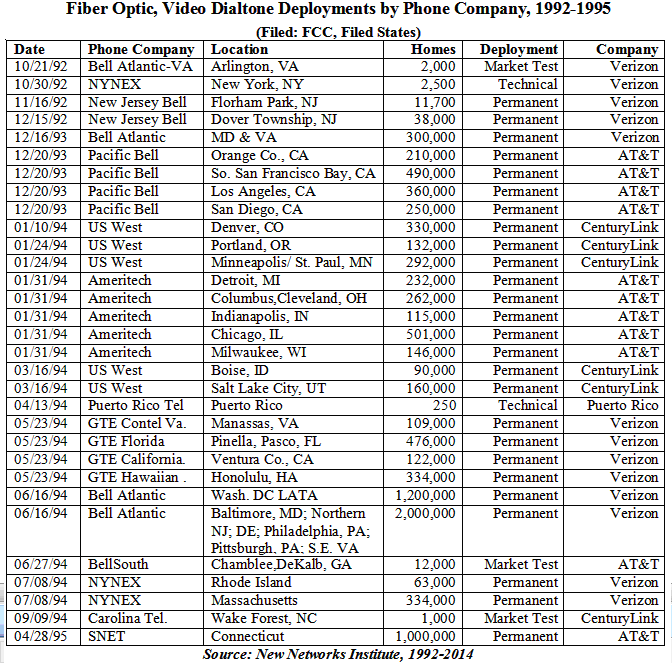
You Have Been Charged Thousands for a FiberOptic, Broadband Utility
A fiber-optic cable, also known as an optical-fiber cable, is an assembly similar to an electrical cable but containing one or more optical fibers that are used to carry light. The optical fiber elements are typically individually coated with plastic layers and contained in a protective tube suitable for the environment where the cable is used.

FIBER OPTIC COPLER LOSS CHART YouTube
Fiber color code is a standard for quickly identifying fibers, cables, and connectors. The Telecommunications Industry Association (TIA) especially launched the TIA-598 standard. This standard addresses the manufacturer's fiber color codes to follow and reference. We can divide color code into three categories for the different segments.
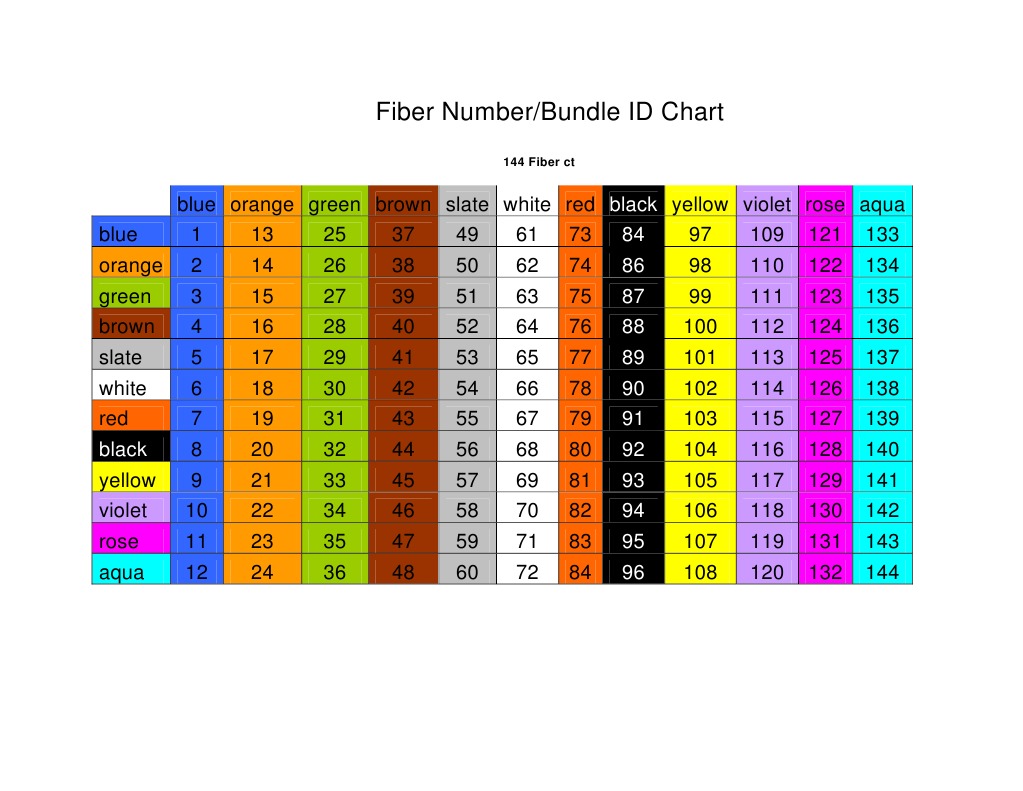
Fiber Number Color Code
Chart Credit: L-Com. Some fiber optic cable comes without connectors. More information on fiber optic connectors is available on the Fiber Optic Connectors Specification Guide. Applications. Fiber optic cables have many important applications. They are used by telecommunication companies to transmit telephone signals, Internet communication.
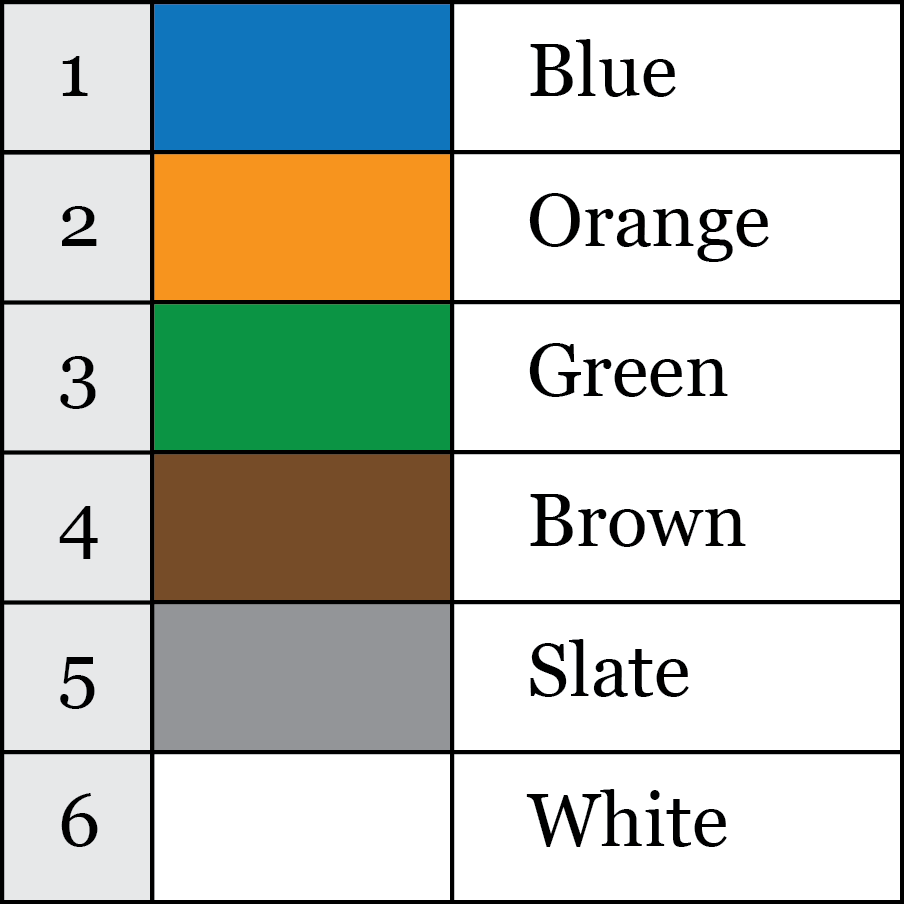
Standard Fiber Optic Colour Codes Nine Micron Inc
FIBER TYPE VS. SPEED AND DISTANCE Is the fiber you select up to speed? Can it go the distance? Choosing the right Fiber Optic Cable Core Type for your present and future needs. -- by Tony Casazza As you can see from the chart below, different Fiber core types have vastly different limitations for speed and maximum distance.

Yellow, aqua, or orange? The meaning of fiber optic color standard
This chart helps to identify some of the many fiber optic connector types available on the market today. ST Connector ST connectors were one of the first connector types to be broadly executed in fiber optic networking applications. The ST, or "Straight Tip" connector, was created by AT&T. The connector makes use of a 2.5mm ferrule.
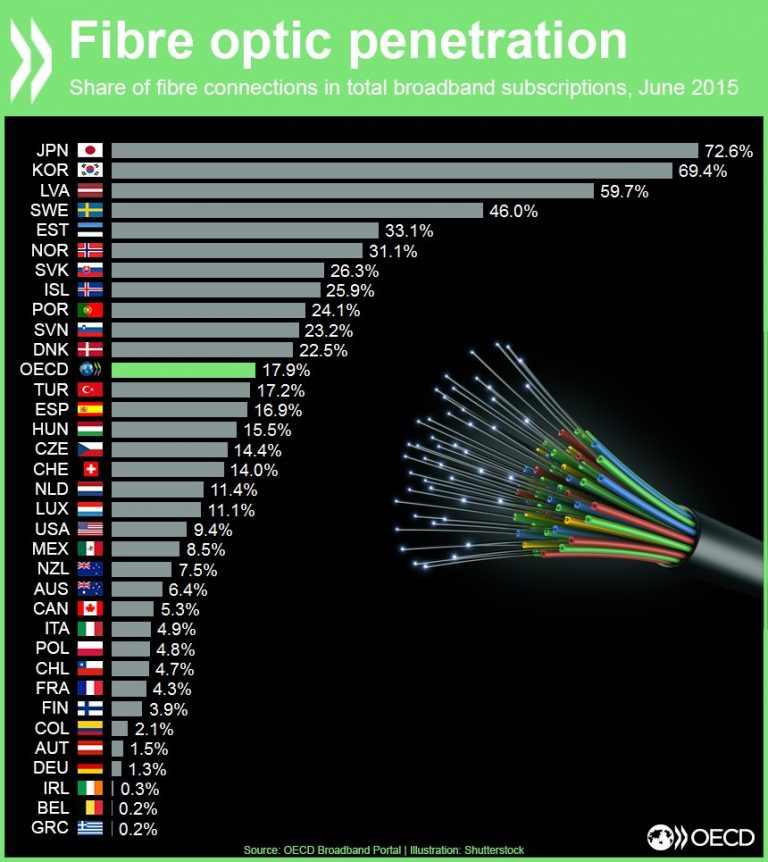
Fiber Optic in OECD Countries Chart
EIA/TIA-598 is the standard fiber color code used in the United States, and the most recognized system worldwide. The method uses a combination of two different colors to identify each fiber. For example, the first fiber in a cable may be blue and the second fiber may be orange. Which parts of the fiber optic cable are colored?
Fibre Optic Colour Codes? (Apprentice Help) r/FiberOptics
Core - At the center of a fiber optic cable is a thin glass tube called a core that transports light pulses generated by a laser or light emitting diode (LED). Singlemode cores are typically 8.3 or 9µm, while multimode cores are available in 50 and 62.5µm diameters. Cladding - A thin layer of glass that protects and surrounds the fiber core, reflecting light back into the core causing light.

Artikel Pembelajaran Teknik Telekomunikasi,.. Urutan Core Kabel Fiber
125 μm Optical Fiber Core Diameters Relative Size Comparison 62.5 μm 50 μm Single Mode(9 μm) OM3 - Laser-Optimized Multimode Jacket Color - Aqua Core Size - 50um Data Rate - 10Gb @ 850nm wavelength Distance - Up to 300 meters Uses fewer modes of light, enabling increased speeds Able to run 40GB or 100GB up to 100 meters utilizing an MPO connector
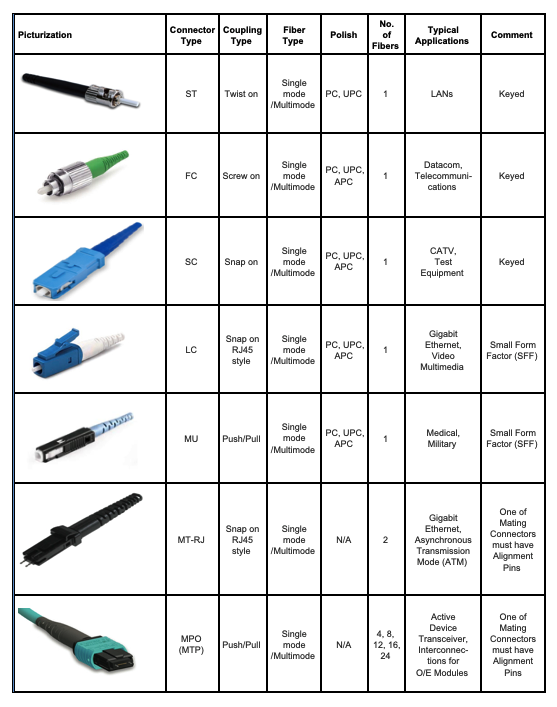
Different types of fiber optic cable connectors with various features
As fiber optic communications systems are expanded to accommodate rapidly growing communications needs, thre has been a demand for higher density cables with higher fiber count. This has led to two new cable designs, microcables with up to 288 or even 432 fibers and high fiber count cables. High fiber counts began with loose tube cable at 432.

216 Fiber Color Code Chart
How fiber-optics works. Light travels down a fiber-optic cable by bouncing repeatedly off the walls. Each tiny photon (particle of light) bounces down the pipe like a bobsleigh going down an ice run. Now you might expect a beam of light, traveling in a clear glass pipe, simply to leak out of the edges.

Fiber Optic Color Codes by Fiber Type Fiber optic
The fiber connector types, sometimes referred to as terminations, link fiber optic cables together through terminals, switches, adapters, and patch panels, by bridging the gap between their internal glass fibers that transmit the data down the length of the cable.
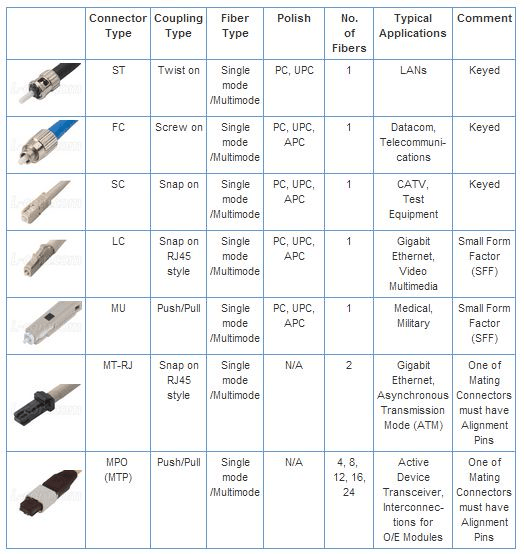
Fiber Optic Cables Information Engineering360
Max Speed Of Fiber Optic Cable. Most ISPs have a maximum fibre optic cable bandwidth capacity of 1Gbit/s, which is the typical fiber optic max speed. Fiber optics is the fastest network offering symmetric upload and download speeds in gigabit scales (up to 10 gigabit per second).

Fiber Optic Color Code Chart For 144 and 288 Count Cables Fiber Optic
Since then we have noticed thousands of searches from people looking for fiber optic color codes for 288 and 432 count fiber, both ribbon and string separated, 24 fiber tubed cables. So here you go. First up is the identification chart for a 288 fiber, 24 tube, fiber cable. This could be used with ribbon or cables that use string for identifiers.
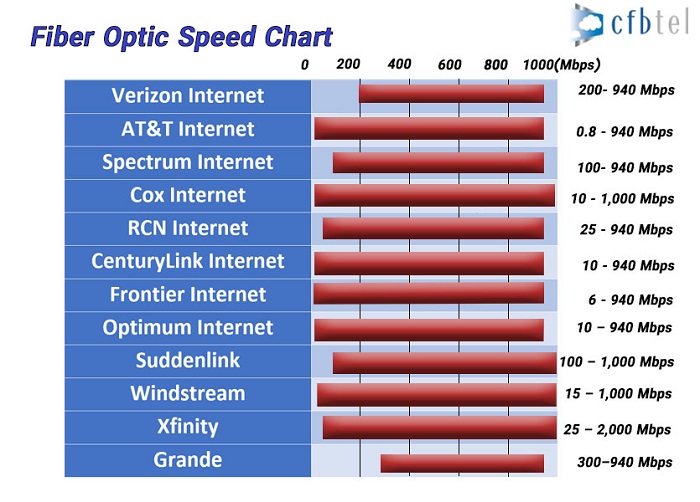
Fiber Optics Speeds Everything You Need to Know About CFBTEL
How Fiber Optic Cables Work What Are the Different Fiber Optic Cable Types? Single Mode Fiber Optic Cables Multimode Fiber Optic Cable What About Plastic Optical Fibers? It's easy to see why this is happening. On the face of it, fiber optic cables have an incredible number of advantages over copper wire signal transmission. These include:

Fibre Optics by 19erolse
FOA Guide To Fiber Optics - Table of Contents. Timeline of Fiber Optic History History of The FOA. FOA Textbooks and Apps FOA Standards For Testing and Links Fiber U - Free Self-Study Programs at Fiber U - FOA's Online Learning Site Resources For Teachers In K-12 And Technical Schools Fiber FAQs (FAQs = Frequently Asked Questions) .